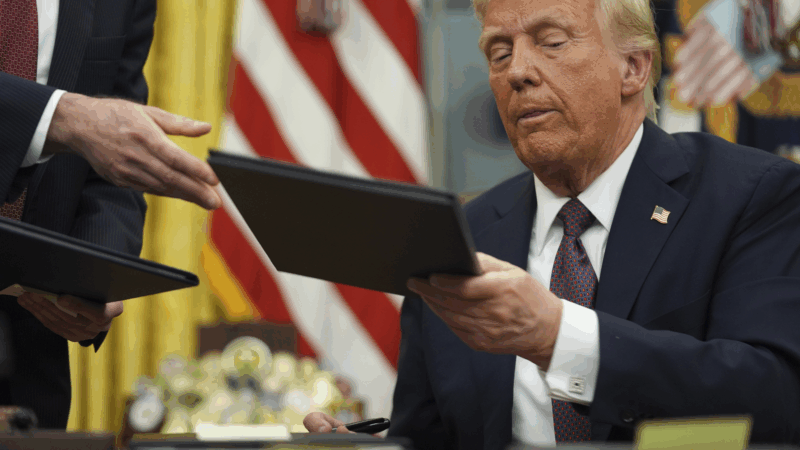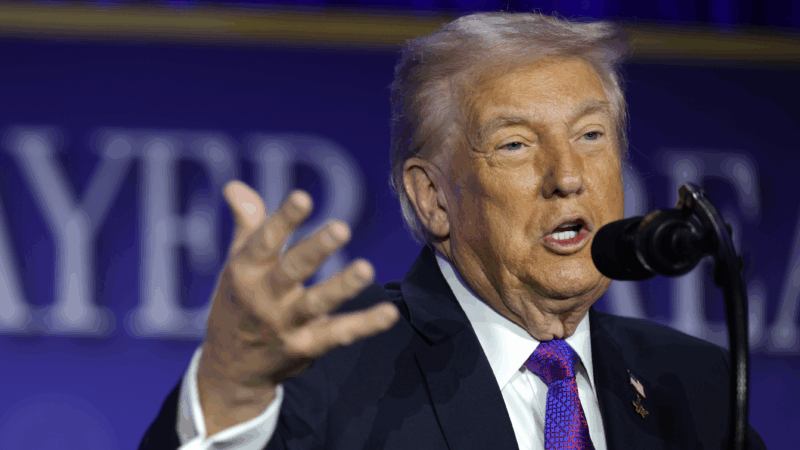Far more environmental data is being deleted in Trump’s second term than before
The current Trump administration has made 70% more changes to government environmental websites during its first 100 days than the first Trump administration did, and those changes are bolder, according to a report published by the Environmental Data and Governance Initiative (EDGI).
EDGI is a nonprofit network of researchers who work with data, started after President Trump took office in 2017. It documents loss of access and usability of government environmental information and preserves that information for public use.
The group found that in the first 100 days of the first Trump administration, there were 371 important changes made to websites, while in the same period this year there were 632 changes. EDGI defined an important change as significantly altering the content, focus or links on a page.
The increase was observed even though EDGI started the second Trump term with fewer volunteers and was monitoring fewer pages — 4,429 this year versus more than 25,000 in 2017. In preparing the report, EDGI says members of its network monitored government web pages. Then they made publicly available the information they preserved and the criteria they used to monitor those federal web sites.
“I am surprised by the extent of the removal of information about environmental justice,” says Gretchen Gehrke, co-founder of EDGI. “That level of total erasure we didn’t see with any topic under the first-term administration.”
The EDGI report shows the administration’s biggest targets included diversity, equity and inclusion (DEI) efforts and environmental justice — the idea that everyone, regardless of their background, has the right to a healthy environment and to participate in environmental decisions. Trump signed an executive order on January 20 eliminating programs, offices and positions related to both issues. That was after former President Biden made environmental justice a central goal for his administration.
“Under President Trump’s leadership, agencies are refocusing on their core missions and shifting away from ideological activism,” Taylor Rogers, White House assistant press secretary, wrote in an email to NPR.
The EDGI report says that the effort to take down websites began the day after Trump took office in January. The Council on Environmental Quality’s Climate and Economic Justice Screening Tool was removed, along with nine similar screening tools at other agencies within the next month. Those tools identified disadvantaged communities in order to fulfill a Biden administration goal of ensuring that 40% of climate program benefits went to them.
The report found climate change information has also been altered or removed from federal websites, though less consistently than environmental justice and DEI sites. The federal climate change research website globalchange.gov was shut down. But the EPA’s primary climate change website remains intact, with links to scientific information and advice for what individuals can do about climate change.
A widely used National Oceanic and Atmospheric Administration (NOAA) site, climate.gov, stopped publishing new content this summer, after the staff of 10 people who contributed to it was terminated. The site published information about changing weather patterns, drought conditions and greenhouse gas emissions and had received nearly one million visitors every month.
Gehrke says there’s little oversight governing how an administration manages government websites.
“We really need to protect our information better,” they say. “Websites are the primary means by which the government communicates with the public.” And Gehrke says good information is essential for the public to participate in a democracy.
In Berlin, there are movies, there’s politics and there’s talk about it all
Buzz around whether the city's film festival would take a stance on the war in Gaza has dominated conversation in recent days.
Alex Ferreira wins 10th gold medal for Team USA, matching America’s highest total in Winter Olympics
Freeskier Alex Ferreira clinches a tenth gold medal for the U.S. in these Games, tying the U.S.'s all-time record for gold medals in a Winter Olympics.
Trump calls SCOTUS tariffs decision ‘deeply disappointing’ and lays out path forward
President Trump claimed the justices opposing his position were acting because of partisanship, though three of those ruling against his tariffs were appointed by Republican presidents.
The U.S. men’s hockey team to face Slovakia for a spot in an Olympic gold medal match
After an overtime nailbiter in the quarterfinals, the Americans return to the ice Friday in Milan to face the upstart Slovakia for a chance to play Canada in Sunday's Olympic gold medal game.
NASA eyes March 6 to launch 4 astronauts to the moon on Artemis II mission
The four astronauts heading to the moon for the lunar fly-by are the first humans to venture there since 1972. The ten-day mission will travel more than 600,000 miles.
Skis? Check. Poles? Check. Knitting needles? Naturally
A number of Olympic athletes have turned to knitting during the heat of the Games, including Ben Ogden, who this week became the most decorated American male Olympic cross-country skier.








